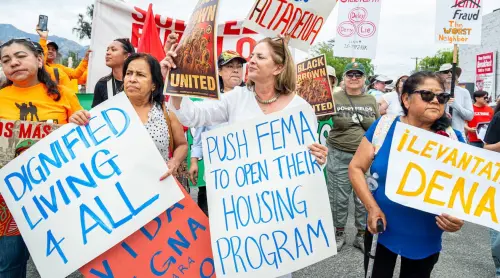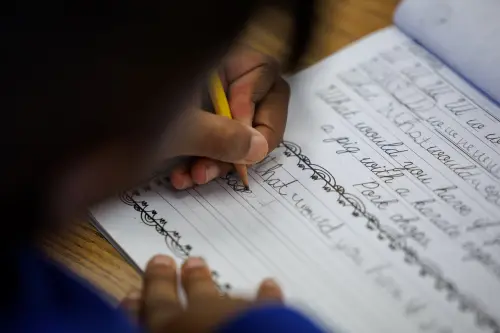Editors’ Note: Hope for positive change in the Middle East and North Africa now rests on democracy’s core building blocks, including the rule of law, civil society, and a free press. These are under siege in many countries in the region, writes Sarah Yerkes, and the pressure is likely to backfire. The post originally appeared on Lawfare.
The recent awarding of the EU’s top human rights prize to imprisoned Saudi blogger Raif Badawi is shining the spotlight once again on the rampant abuse of freedom of expression in the Middle East and North Africa. Although Arab autocrats have long used control of the press to silence opposition, in recent months the state has turned up the heat on both traditional and digital media actors in some not-so-surprising places, like Egypt and Saudi Arabia, and some surprising places, like Morocco and Tunisia.
Rather than silencing them, by engaging in increasingly harsh and obviously political attacks against the media, Arab states are drawing international attention to and thereby amplifying the voices of their critics.
What does a media crackdown look like?
When Arab leaders decide to initiate a crackdown on journalists, bloggers, and media activists they tend to use the same excuse: counterterrorism. This usually comes in one of three forms: criminalization, harassment, or censorship. Criminalizing criticism of the police or armed forces in the name of preventing terrorism—either through passing new anti-terror legislation, enacting emergency laws, or acting extra-judicially—allows governments to neutralize the press while giving the appearance of good intentions.
When governments are less concerned about their image at home and abroad, they may resort to physically attacking or harassing journalists who attempt to cover anti-regime protests or elections. The officers who carry out these attacks often act with impunity. Governments also use censorship (either self- or editor-imposed censorship, or government oversight) to prevent negative stories from seeing daylight in the first place.
Egypt, once home to a “partly free” press, has seen a continuous assault on the media since a government crackdown surrounding the November 2010 elections. The Egyptian government has exercised further and increasing state control over the media since the 2011 revolution and has gone so far as to ban entire news outlets, such as Al Jazeera’s Egyptian affiliate. To aid in its control over journalists and media activists, the Egyptian government also relies on a vast electronic surveillance network.
In a place like Morocco, where the state works hard to build a democratic façade, violations against press freedom often appear in creative ways. For example, as Freedom House notes, “Morocco’s 2011 constitution guarantees freedom of the press, but its vague language enables great latitude for interpretation and hinders enforcement of media protections.” Morocco has arrested and imprisoned media figures for crimes with no overt connection to their work, such as adultery. Morocco has also deported foreign reporters and accused local media activists of financial improprieties.
Most worrisome are reports of media crackdowns in Tunisia, which Freedom House rated the first “free” Arab country since 1975 in its latest Freedom in the World Report, and which regularly rates more favorably than the remainder of the Arab world in press freedom reports. Much like Morocco, Tunisian authorities rely on a confusing and sometimes contradictory legal framework to justify prosecution of journalists. As the Committee to Protect Journalists notes, “the government … has introduced new legislation that could be abused to silence the media. Security services are sensitive to criticism, leading to legal harassment of critical journalists and even physical assaults and threats on those carrying out their reporting.”
Miscalculating the backlash
Why are Arab governments from across the region targeting the press? One explanation is that certain journalists and bloggers are either intentionally or unintentionally harming state stability through their work. The more realistic answer is that Arab leaders believe that by shutting down existing critical forms of communication and preventing new voices through intimidation of the media sector writ large they are protecting their regime’s longevity. And they are confident that they can get away with media repression. Here, Arab leaders are making a dangerous miscalculation.
It should now be clear that in the Internet age it is impossible to truly silence one’s critics. In Egypt, during the early days of the revolution, the Mubarak regime took the unprecedented step of turning off the Internet, believing—falsely—that this would prevent citizen connectivity. That effort failed. Today, even if the local media is unable to get their message out, some form of “citizen journalism” usually can.
Additionally, international non-governmental organizations (NGOs) such as the Committee to Protect Journalists, Human Rights Watch, and Reporters Without Borders have become increasingly vocal in their criticism of Arab states’ disregard for press freedom. This criticism not only gives an international platform to the very individuals and activities the state is trying to silence, but also makes many Arab governments appear hypocritical to the international community. In states like Morocco or Egypt that at least give lip service to respect for rule of law, a scathing NGO report or dozens of international media stories about imprisoning or forcibly disappearing journalists makes these violations difficult for the U.S. government to ignore.
Although Arab leaders may believe that a strong security relationship with the United States insulates them from criticism, in reality press freedom is one of the most fundamental and cherished U.S. values, infringements upon which are likely to draw ire from across the U.S. political spectrum. This does not mean that the United States will cut off assistance in the name of protecting press freedom, but it can have a diplomatic impact. As reports of media crackdowns multiply and take on a more clearly political bent, the United States is less likely to publicly praise the reform efforts of countries like Morocco and Egypt and, in private, will likely engage in difficult conversations with governments who are not keen to hear their internal efforts criticized.
Another miscalculation on the part of the Arab leaders is the importance of the media as a pressure-release valve. With a free press and even limited freedom of expression, citizens have more confidence in the state and the justice system, in particular. Providing citizens a legitimate outlet through which to express their opinions contributes to rather than undermines state stability.
It is time for Arab leaders to realize that cracking down on the media is not achieving the desired effect. Protecting press freedom may be painful for the political leadership, at times, but in the long run it can benefit the citizenry, the state, and maybe even the political leaders themselves.
The Brookings Institution is committed to quality, independence, and impact.
We are supported by a diverse array of funders. In line with our values and policies, each Brookings publication represents the sole views of its author(s).




Commentary
The unintended consequences of media crackdowns in the Middle East and North Africa
November 9, 2015